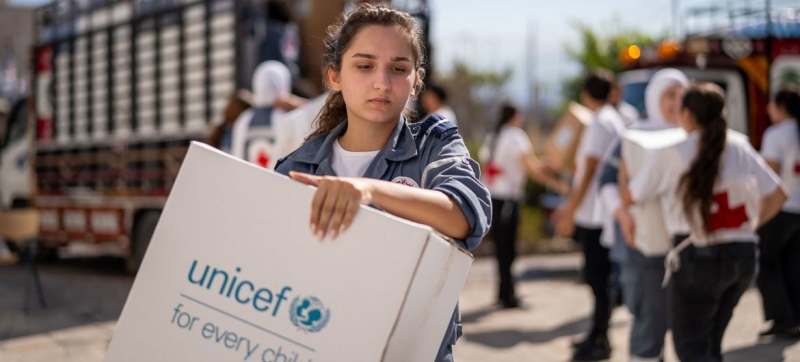
Despite all the difficulties, humanitarian aid is arriving in Lebanon. Conflict in Lebanon has reached a “critical point”: more than 3,000 people have been confirmed dead Peace and security
More than three thousand people have already been killed in the latest round of escalation of the conflict in Lebanon, representatives of UN humanitarian organizations reported Wednesday.
The death toll in Lebanon since October 8, 2023, is 58 percent higher than the death toll from the previous 34-day conflict between Israel and Hezbollah in 2006, according to the UN Office for the Coordination of Humanitarian Affairs (OCHA).
“At least 71 people were killed in airstrikes across the country on November 1 alone,” OCHA said in a statement.
The conflict has reached a “critical point,” according to the Office, with an estimated 1.3 million people forced to flee Lebanon. OCHA warned that the humanitarian situation continues to deteriorate due to increased Israeli airstrikes and displacement orders, particularly in Haret Said in southwest Lebanon and Baalbek in the east.
UN aid for burns centre
Amid fresh Israeli airstrikes on Wednesday morning, UN aid agencies delivered life-saving trauma supplies to Lebanon’s only specialist burns hospital.
In support of the efforts of medical teams in Lebanon, the World Health Organization (WHO) on Tuesday provided emergency surgical kits to at least 50 patients at Beirut’s Geitaoui Hospital. WHO worked in collaboration with the United Nations Central Emergency Response Fund and the European Union.
The hospital was already under heavy pressure before the Israeli military stepped up attacks on Lebanon in late September in response to Hezbollah rocket attacks on Israeli targets, said Dr Abdinasir Abubakar, WHO’s representative in Lebanon. But local health workers are now facing even greater challenges.
The hospital is overwhelmed by casualties from airstrikes in Lebanon, a WHO representative said, calling for continued support for the country’s only burns centre. According to him, a quarter of the patients who have suffered burns so far are children.
The burn center at Geitaoui Hospital was initially equipped with 10 beds, but now it has 25 beds, which allows it to provide critical care to patients with severe injuries.
“Helping people and saving lives”
Expressing solidarity with Lebanon’s health workers, UN Humanitarian Coordinator Imran Riza condemned ongoing attacks on medical personnel and infrastructure, including ambulances.
“We must support them not only with supplies, but also by upholding their rights,” Imran Riza said. “We are seeing serious violations of international humanitarian law. We must ensure that health workers can do what they are there to do – help people and save lives.”
Obstacles to Aid Delivery to Gaza
The UN Office for the Coordination of Humanitarian Affairs reported that for almost a month now, all attempts by OCHA staff to deliver food to residents of besieged areas of northern Gaza have been blocked by the Israeli authorities. In the central and southern parts of the sector, more than 100 kitchens producing 400,000 meals a day are at risk of closing due to supply shortages.
The health system in northern Gaza remains in critical condition, with Kamal Adwan Hospital attacked twice in the past week and critical supplies being denied to Al-Awda Hospital.
Newborn care system destroyed
“Kamal Adwan Hospital in northern Gaza has become a besieged war zone,” said Adel Khodr, UNICEF’s Regional Director for the Middle East and North Africa. While denouncing the forced reduction in specialized care for infants in Gaza, she noted that the neonatal intensive care unit at Kamal Adwan Hospital was the last such facility in the north of the enclave.
At least 4,000 infants in the enclave have been deprived of care over the past year due to repeated attacks on hospitals, power cuts and extremely short fuel supplies, according to UNICEF.
The UN’s top relief coordinator for the occupied Palestinian territory called for an end to the suffering of the people of Gaza on his first visit to the enclave since Israel launched its military operation in the north a month ago.
“It’s hard for people to survive in this place,” Muhannad Hadi said after visiting a school run by the UN agency assistance to Palestinian refugees (UNRWA). “The suffering must end. This war must end.”
